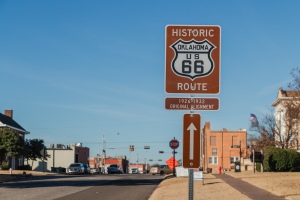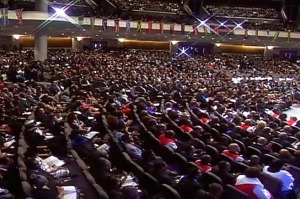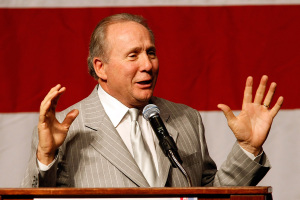Two Possible Futures for Evangelical Churches, According to Christian Philosopher James K.A. Smith

The first trajectory is for evangelicals to become more like Mainline Protestants: "What they'll say is, 'we want to kind of tack to what we think is plausible within the modern moral order.' So you get a certain new rendition of Protestant evangelicalism that looks to me, like a very predictable trajectory."
The second trajectory is to adopt some of the habits of Catholicism, "a 'Catholic retrieval of incarnational sacramental spirituality.' In other words, what you'll also see, is Christian communities and evangelical communities who are reacting to that disenchantment and desacramentalization of the world — the ex-carnation. And are therefore drawn to more incarnate, embodied, communal, sacramental expressions of the faith."
Smith says he has seen this trend already, not just in with young evangelicals joining the Anglican, Catholic or Orthodox churches, but in evangelical churches.
Smith was not only predicting, but advocating the second trajectory.
"On the other side of that wasteland, as Taylor puts it, the sort of do-it-yourself spirituality of the 'spiritual, but religious,' — when it fails, if it fails, it often fails in the face of crisis," Smith explained.
"And it seems to me, that only if religious communities actually have a truly robust alternative, not just the kind of 'Jesusified version of spiritual but not religious,' would it really be seen as a welcome alternative to that. And so part of what I'm watching for is how much these robust, almost ancient retrievals of faith become live options again, even though we're within a secular society."
During the Q&A, Smith spoke more about the second trajectory — nondenominational evangelical churches that are "retrieving ancient ways of being Christian."
Smith admitted to his own selection bias for the churches he has observed — the churches following the second trajectory are more likely to invite him as a speaker — so he was uncertain about the extent of this trend.
As an evangelical, Smith believes his mission is "to remind evangelicals that they're Catholic ... but not necessarily Roman. ... It seems to me, the viability of faith communities in [the secular age], are directly indexed to their ability to draw on wells that are older than modernity."
Smith noted there is a "surprising openness" to his ideas "in places that you would never expect." He mentioned Christ Community Church in Des Moines, Iowa, Sojourn Community Church in Louisville, Kentucky, and Dallas Theological Seminary.
When asked how these churches are changing their worship services, he noted one indicator that an evangelical church is following the second trajectory is that they have Communion at every worship service, like one finds at Catholic, Anglican or Episcopalian services.
"Basically, they're going from what I call the sort of 'talking-head brain-on-a-stick model,' where you walk in, sing 30 minutes of very emotive songs, and then sit down for a 45-minute lecture; to what I think most people would feel like is a kind of Catholic rhythm. They see worship as this narrative performance from beginning to end, and they're walking through the dynamics of confession, absolution, ..." Smith described.
In a follow-up question via email after the Faith Angle Forum, The Christian Post asked Smith if there is a possible third trajectory for evangelical churches that is neither mainline-like nor Catholic-like: "Why do you think a non-Mainline-like low-churchiness is not a possible trajectory?"
He admitted its a possible trajectory but expressed doubts about its ability to meet the challenges of the secular age.
"I just think that sort of emotivist plus message-based way of 'doing church' is too similar to secular alternatives to really have any transcendent attraction to it," he wrote. "But as long as it functions as a subculture, the subculture will keep fostering it, I guess."
Smith is the Byker Chair in Applied Reformed Theology and Worldview at Calvin College. He is the author of several books, including, How (Not) to be Secular: Reading Charles Taylor, and You Are What You Love: The Spiritual Power of Habit, which was published this month.
You can listen to his full talk, or read the transcript here.



























